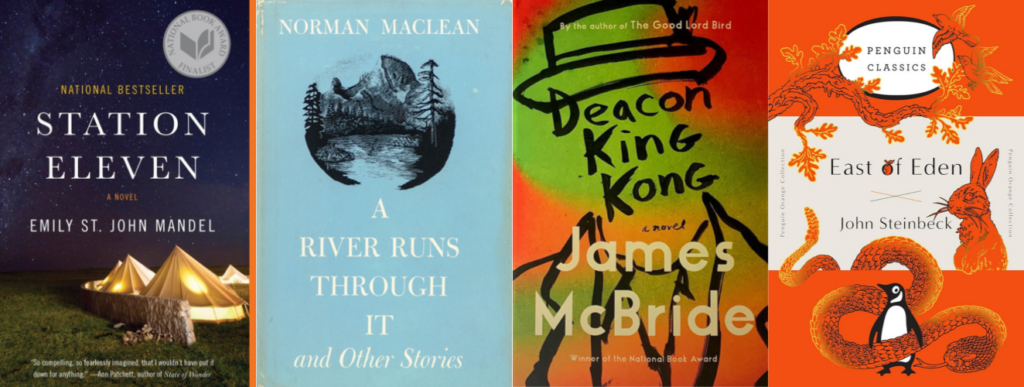“Are we doing a play?” the little boy asked, running through the door of the Sunday School rooms.
“Not today,” I said, pulling out a book to read to the children assembled on the colorful rag rug before me. The little boy’s face fell.
“Plays are my favorite part,” he said, plopping next to his sister on the rug.
Last summer, I joined the staff of our church in downtown Charlottesville, Virginia, a part-time job as the Director of Children’s Ministry. I had been volunteering and even talked to the rector about our need for a dedicated person to work with our youngest parishioners. Little did I know I was describing myself. A few weeks later, after conversations with my husband and a few friends, I went back to the rector and said, “I think I am supposed to do this job.” He agreed and I started the next month.
Summer Sunday School was a good place to wade in. Many families travel so the numbers are smaller and easier to manage. I experimented with a few ideas until I struck upon the idea of staging plays, just for ourselves. Each week, the children would arrive after the children’s sermon and immediately choose whether they wanted to perform or watch. We provided costumes and props, some homemade, some purchased at the dollar store and the children told the story of creation, from the darkness and light to the creation of humans. “It is very good!” The narrator shouted, at the end of Scene I. Scene II was where the action happened. Nine year old boys fought over who would play the snake. The children loved recreating the scenes of Adam and Eve and God searching for them. The play made the story come alive.
In the fall, we moved into a more traditional curriculum and learned about the Lord’s Prayer and Apostles’ Creed. Each week, I would present a key piece of theology, in easy to understand words and phrases. And while they paid attention, nothing kept their focus like a play. So we returned to the stories, starting with the Tower of Babel and working our way up to Jacob and Esau. The stories connected to their real life experience. Sibling rivalry was something that all the children (and grown ups) understood. During Lent, we will perform the Lost Son, a childlike retelling of the great parable of the Prodigal Son. The children are very excited.
I am not a minister by training. I am a writer. I love words and ideas. My heart hums when I convey a deep truth in beautiful and accessible language. Some of my best lessons for the children were like that—a wonderful concept in easy to understand, creative metaphors or words. But to be honest, they fell on deaf ears. Sure, they dutifully listened and did the crafts and activities but the ideas and messages did not connect with their lives and their interests.
Story, the narrative of God’s story, is where they saw themselves and learned more about God. I should have known this. I often forget even good sermons but a redemptive story that resonates with something in my soul, like Station Eleven, A River Runs Through It, Deacon King Kong, or East of Eden? Those stay with me. Frederick Buechner writes, “It is through those stories in all their particularity as I have long believed and often said, that God makes himself known to each of us most powerfully and personally.”

Story is the driving energy behind our faith becoming more than knowledge. Story is the entry point to the heart. Madeleine L’Engle writes this about story:
“Let’s recover our story because we’ll die without it. It’s a life-giving story—this magnificent narrative we find in Scripture—if we are willing to read openly and to read all of Scripture. The God of Scripture can sometimes seem brutal seen through the eyes of the early biblical narrator, who is looking at the Creator through crudely primitive eyes. But the God of Scripture is also the God who refused to nuke Nineveh, even though that’s what Jonah wanted; who forgave David for a really staggering list of wrongdoings; who wants only for us stiff-necked people to repent and come home; who goes out into the stormy night for the one lost black sheep; who throws a party when the Prodigal Son returns; who loves us so much that God did indeed send his only begotten son to come live with us, as one of us, to help us understand our stories—each one unique, infinitely valuable, irreplaceable.”
I can give the children all the right theological ideas about God: that God created us, he loves us, he pursues us, he finds us. That Jesus died for our sins on the cross and that through his death, we are forgiven. But those are just words until we add the weight of story behind them. Without example, we do not trust these words. The story of God, the redemptive narrative of his love for his children, is where children connect, where we all connect with the reality of our faith.
Children love stories and if we are to engage them in the truth, we must tell the story of God. We all need to remember the Story. Perhaps this is what Jesus meant when he said “Truly I tell you, unless you change and become like little children, you will never enter the kingdom of heaven (Matthew 18:3).” Discipleship does not mean we know the right answers. It means we understand the full story of God and our roles in it. Do not be afraid to tell God’s stories. They are what sustain our faith and arguably, ourselves.



